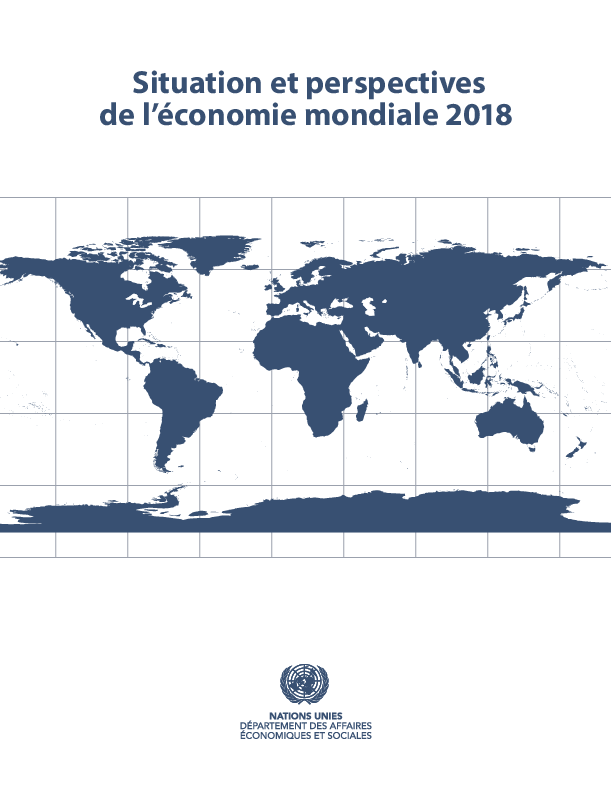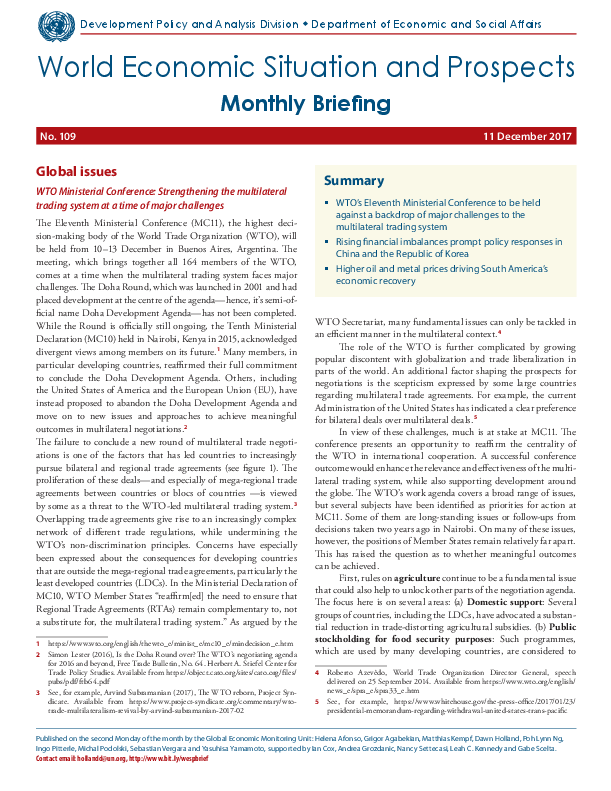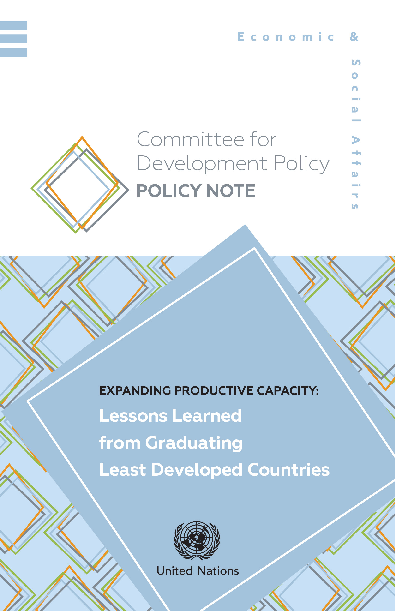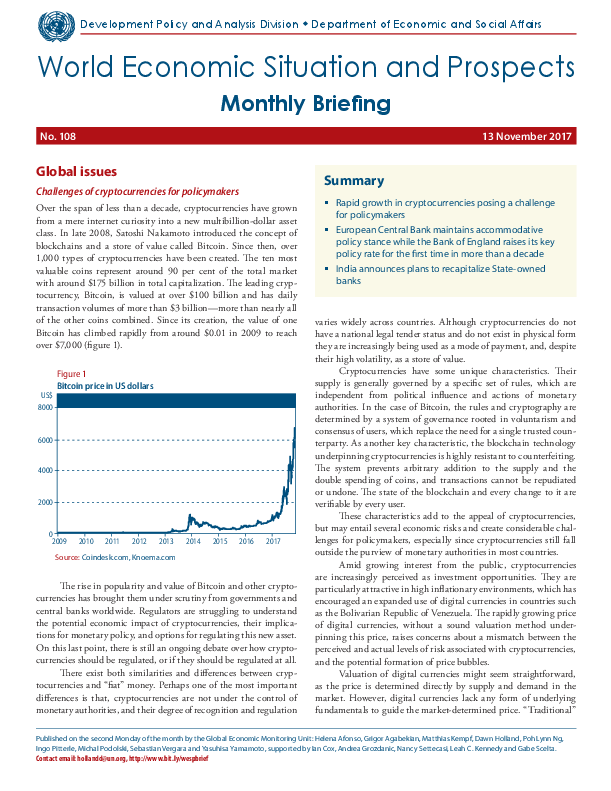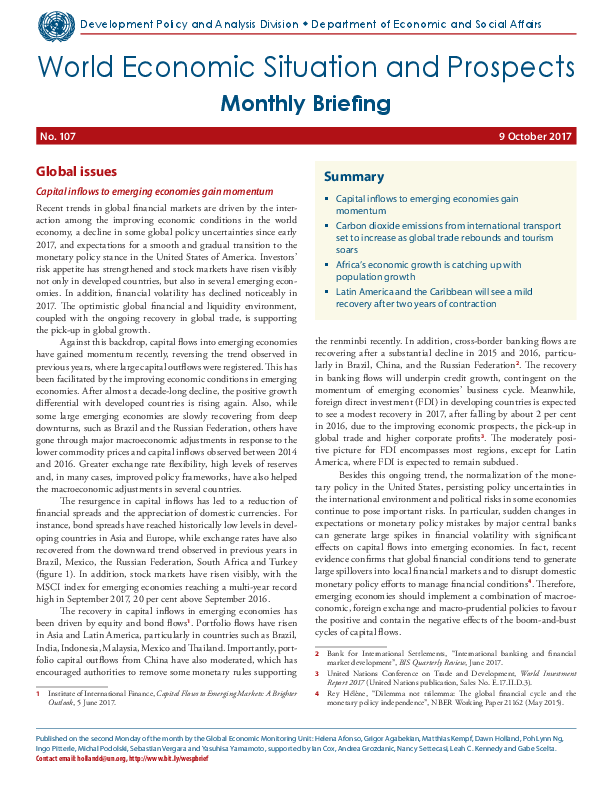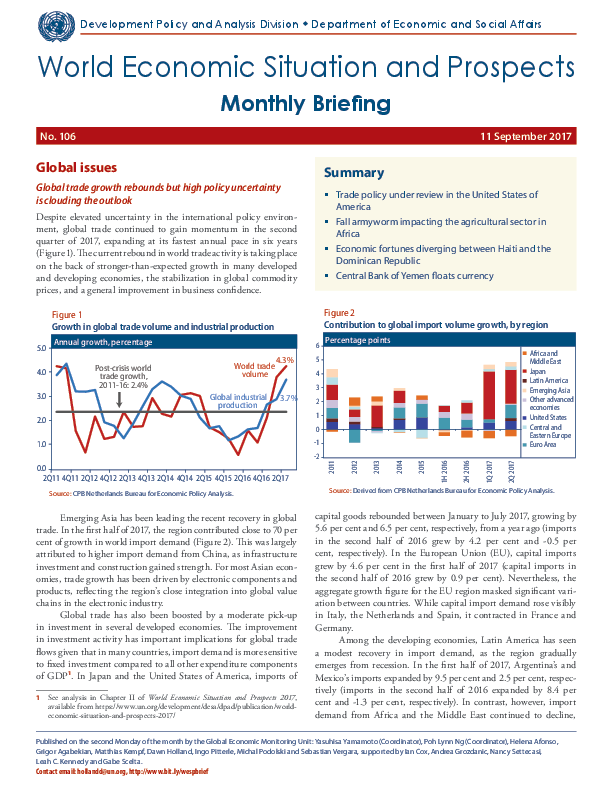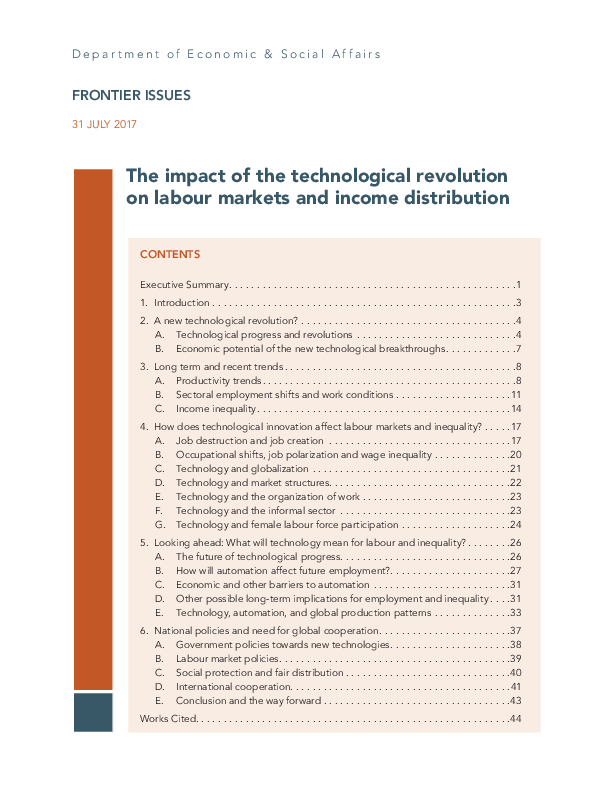Publications
Displaying 391 - 400 of 1100
Agenda
Watch the Seminar 'Leaving no one behind and addressing inequality in the 2030 Agenda and the SDGs'
Global issues Capital inflows to emerging economies gain momentum Recent trends in global financial markets are driven by the interaction among the improving economic conditions in the world economy, a decline in some global policy uncertainties since early 2017, and expectations for a smooth and gradual transition to the monetary policy stance in the United States of… World Economic Situation And Prospects: October 2017 Briefing, No. 107
عربي, 中文, English, Français, Русский, Español Report of the Secretary-General on development cooperation in middle-income countries (A/72/329)
عربي, 中文, English, Français, Русский, Español 2017 Reports of the Secretary-General to the General Assembly
 Welcome to the United Nations
Welcome to the United Nations
